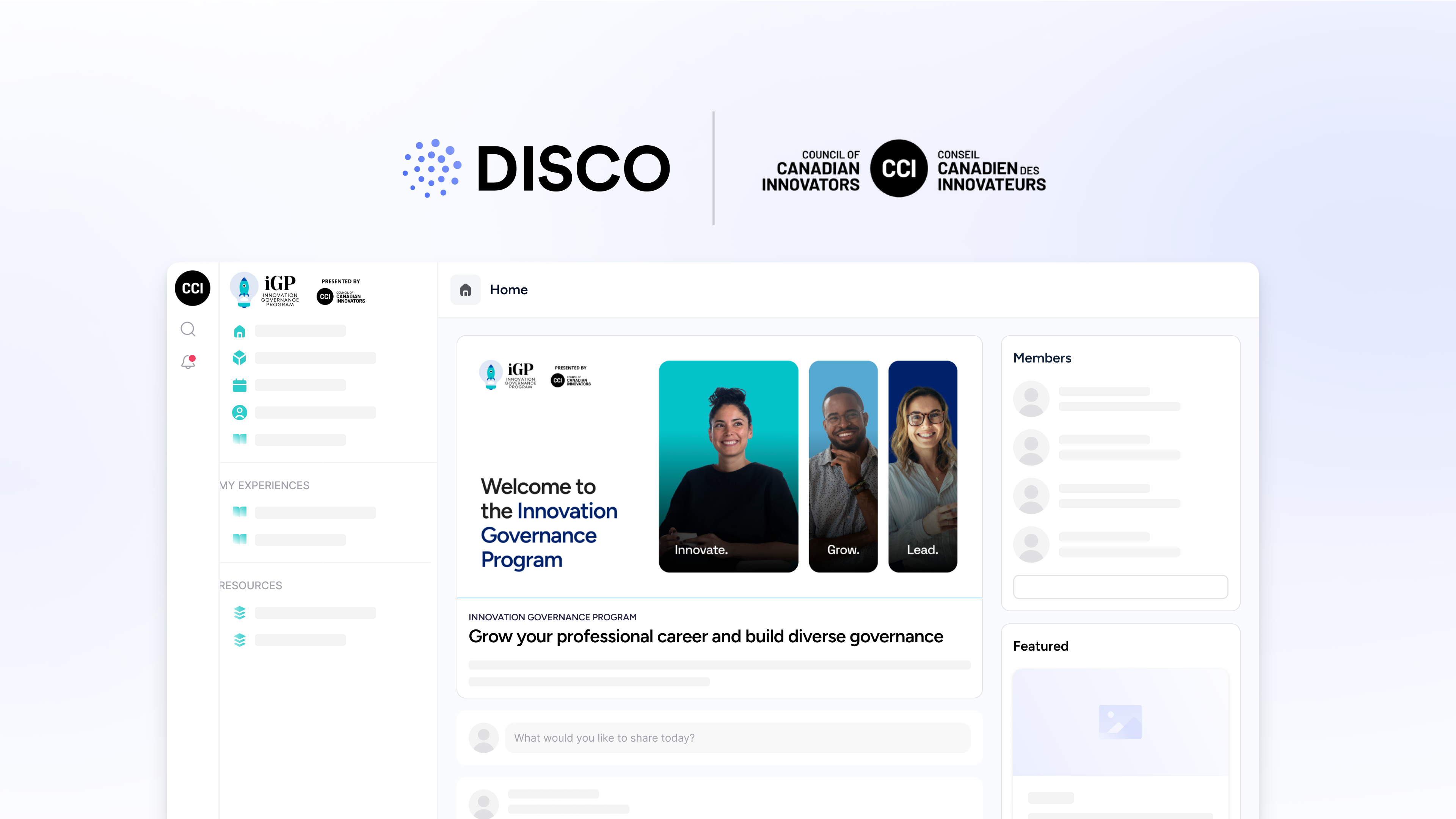Topic
Community Building
Explore strategies for building engaging and supportive learning communities through our articles. Learn about how to foster collaboration, connection, and engagement among learners. Discover tools and techniques to create a thriving community that enhances member experience.
Articles
Learn more
Disco Community
Meet like-minded people and explore learning experiences to help you grow.
Platform Tour
Take a tour to experience Disco’s all-in-one platform as an admin and learner.
Help Center
Find platform tutorials and how-to-resources to best utilize the Disco platform.
Subscribe to Disco Weekly
Weekly insights to build and grow your learning community!







